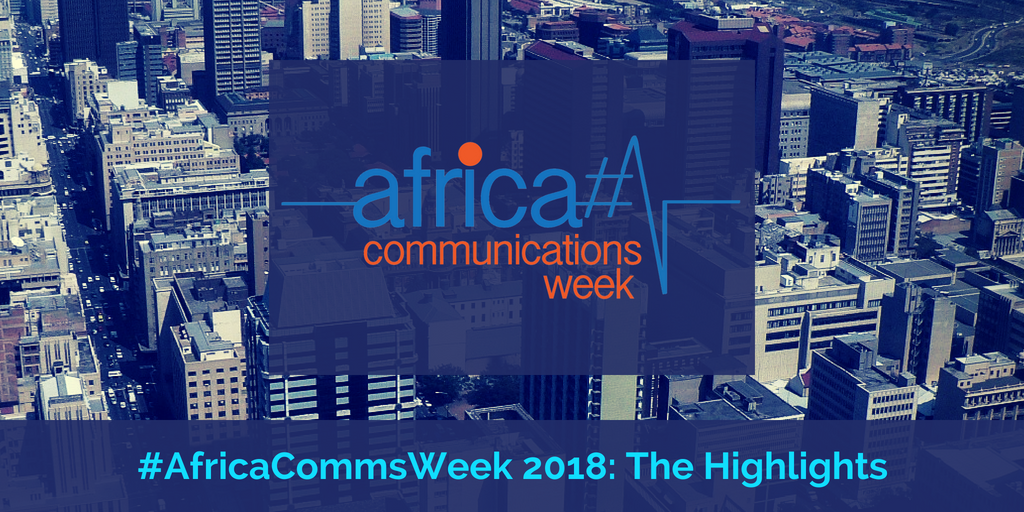The second edition of #AfricaCommsWeek lived up to expectations and explored a unique theme vital to Africa’s transformation: Economic Integration in Africa: Opportunities for Communications.
The conversation was rich – both on social networks and in exceptional events in 23 countries. Communication experts took the time to exchange ideas, get to know each other, develop recommendations and create fruitful collaborations. In some African capitals, exchanges took place in the presence of communication ministers and senior state officials in charge of these issues.
The 2018 edition of AfricaCommsWeek was forward-looking, with exceptional partnership and engagement with government, private sector, civil society and academic institutions in many countries. Communicating the Africa we want is well on its way.
Monday, May 21
In Abuja, an online workshop organized by Resonae Solutions kicked off AfricaCommsWeek 2018 and made it possible to identify concrete actions for communicators wishing to play an active role in African integration.
In Kinshasa, experienced communicators also contributed to debates on the issues of African integration, through a video which highlights the fact that“talking about economic integration involves two types of communication: institutional and commercial. Successful economic integration requires better communication both to the people and to the production units.”
Tuesday, May 22
Towards a Balanced and Authentic South African Narrative: the exchanges in Johannesburg were facilitated by PR Trends ZA and aimed to take a hard look at the successes and limitations of the communication sector in managing the national narrative in South Africa.
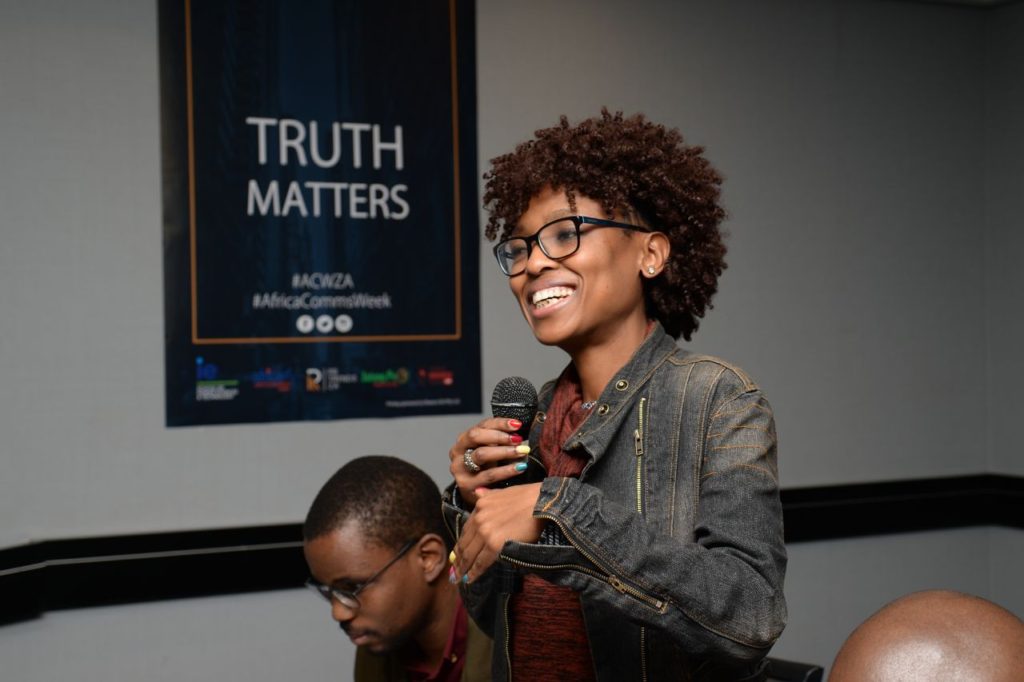
In Abidjan, a masterclass in storytelling by IE University professor Nicholas Randall followed by an exchange of experiences was the ideal format for communication experts who had come to the event, driven by the desire to contribute to the development of Côte d’Ivoire.
Great research exercise in Lubumbashi, where a “communicathon” inspired creative minds. Participants (mostly communication students) were asked to communicate differently for an economic integration of Africa. In the form of infographic, poster, video, web page or audio production, future Congolese communication leaders gave free rein to their imagination.
In Brussels, a networking evening brought together some sixty experts in diaspora communication or interested in Africa. A series of recommendations emerged from these exchanges.
Wednesday, May 23
A conference was organised in Lubumbashi by Marketing DRC platform.
The issues surrounding financial communication were debated in N’Djamena, where the Chamber of Commerce of Chad hosted AfricaCommsWeek for the second time. Under the leadership of communication agency Fortius, a panel of experts made recommendations on this topic of great relevance in the context of African integration.
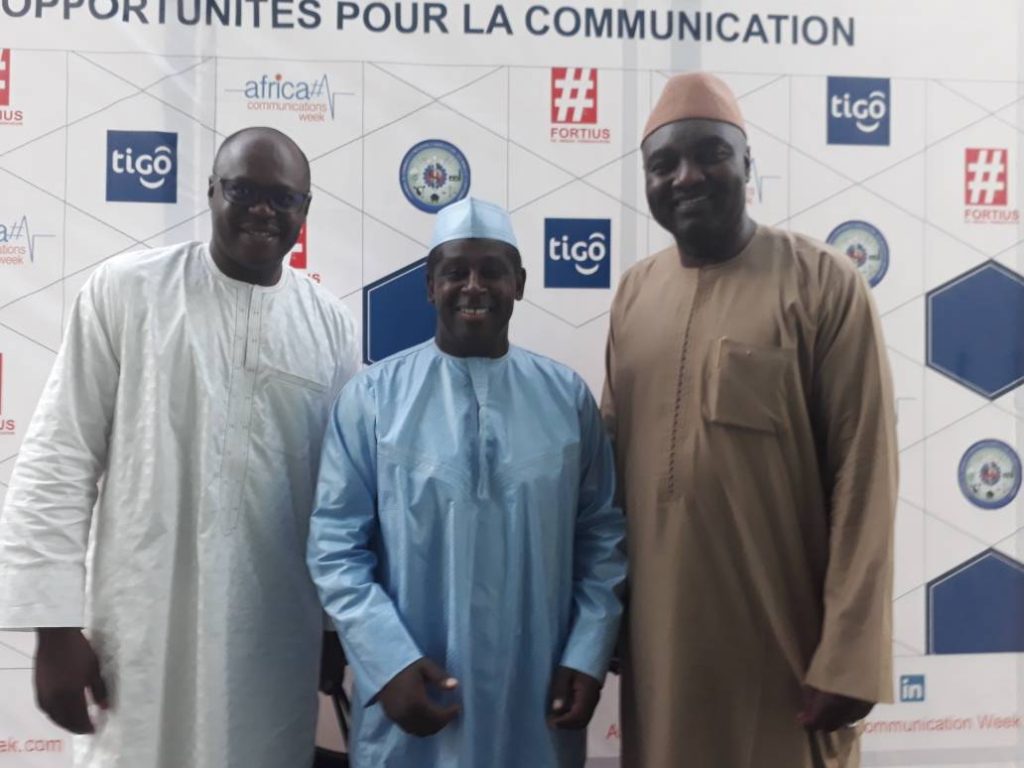
Sierra Leone’s first very active participation in AfricaCommsWeek, organized by Women Mean Business, was an interactive discussion on how technology and multi-dimensional communication can address the challenges facing the country.
In Accra, WaxPrint Media agency organized a MarketingDecoded “special AfricaCommsWeek” session. Exchanges of experience between entrepreneurs, startups and marketing professionals have highlighted the importance of public relations and media relations in building a brand – especially in an emerging economy.
Thursday, May 24
“Communicators need to invest time in research, in order to understand the logic behind the nation’s branding efforts. There is no collective and deliberate action without prior research.” This is one of the many lessons from the Lagos conference organized by The BBC Company, which brought together top experts.
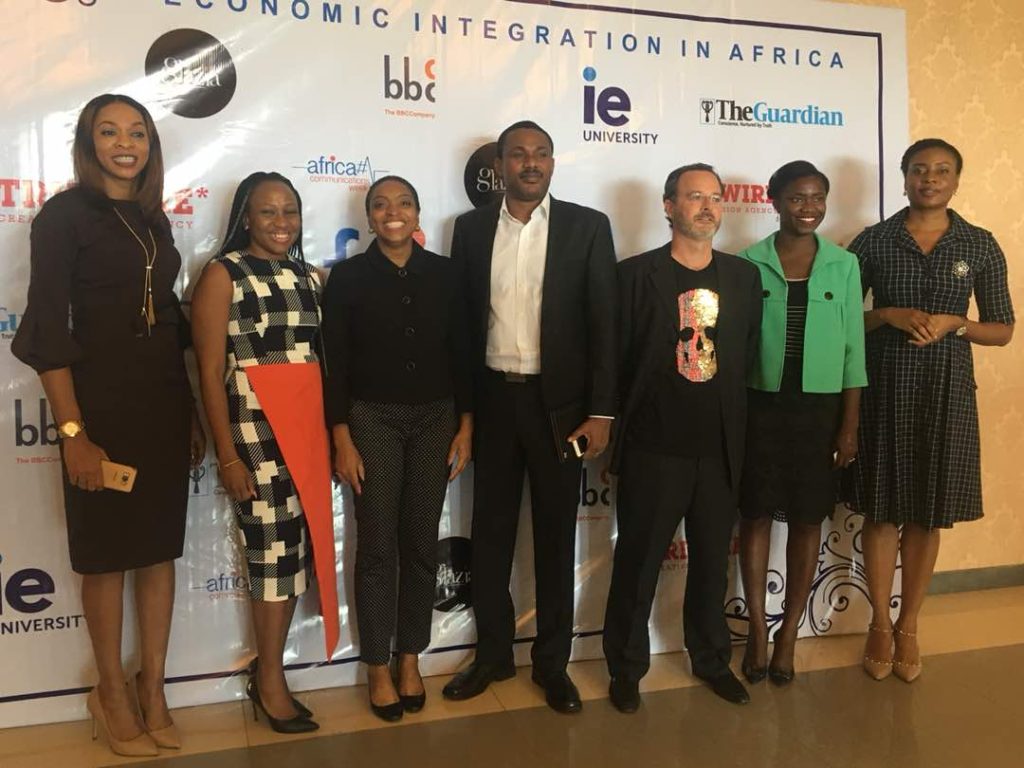
During AfricaCommsWeek, Dakar became a platform for exchange and examination of the profession from every angle. Under the supervision of the Watu Lab Digital agency, thematic panels explored the role of communication in different areas:
– Science, research, agriculture
– Culture
– Education, Health
– Promotion of citizenship, governance, gender, public policies
The third day of events was dedicated to masterclasses and business workshops with renowned experts.
The Africa We Want will be communicated by today’s students. It is in this spirit that 3 full days of activities were organised at the Institute of Information Sciences, Communication and Arts (ISICA) of the University of Lomé. From practical workshops (radio / TV / blogs) to conferences, round tables and gala evenings, the program was particularly rich and rewarding.
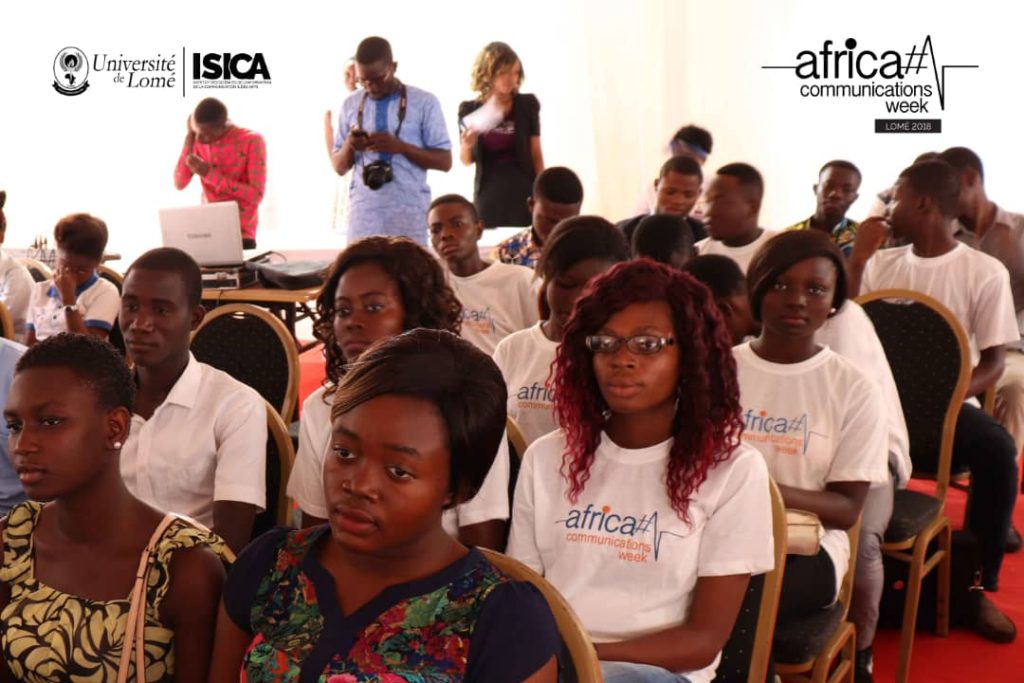
Friday, May 25
For its first participation in AfricaCommsWeek, Liberia delivered a strong message, through the voice of its Minister of Information, Cultural Affairs and Tourism, Hon. Eugene Nagbe: “Communicators in Liberia must be full players in the national economy”. The session was organized by Moie Media.
In Cape Town, in front of industry experts brought together by PR Trends ZA, the South African Minister of Communication, Hon. Nomvula Mokonyane reaffirmed the essential role of communication in defining and clarifying the context of a nation, but also in creating a link between citizens and institutions. These exchanges were preceded by a masterclass by IE University professor Miguel Laredo on the importance of storytelling in our perceptions of the world.
The Tunisian edition of AfricaCommsWeek was the occasion for exchange between African experts in digital communication. Orchestrated by the Tunisian Association of Marketing and Communication Professionals (ATPMC), the conference set out how the digital communication sector could promote or accelerate Tunisian-African economic development.

In Ouagadougou, Capital Logis organized an edition of AfricaCommsWeek on the role of communicators in “Africa 4.0”. Enhanced by the presence of the Minister of Communication of Burkina Faso, HE Remis Dandjinou, the conference tackled the issues of artificial intelligence and its consequences on the role of communicators.
Contribute to the building of African integration? Yes but how? This question was at the heart of the exchanges in Cotonou, under the expert guidance of Interglobe Conseils. On the occasion of a particularly informative Café des Medias, several experts were able to discuss the importance of communication in African integration and the elaboration of a narrative more true to African realities.
Italy participated for the first time in AfricaCommsWeek with a webinar hosted by African Summer School and vadoinafrica.com from Rome. On the theme “Economic Integration in Africa: opportunities and challenges for the world of communication”, the webinar took the form of a round table of experts.
The question of the role of communicators in the socio-economic development of Africa obviously has a different light depending on whether one is on the continent or in the diaspora. In London, communication experts from the African diaspora came out in large numbers for the event organized by Abjel Communications, and there have been many concrete suggestions from this heated debate.
In Dar es Salaam, in partnership with the Tanzanian Public Relations Association (PRST), the debate highlighted the opportunities of the communication sector to accompany the industrialization of Tanzania.
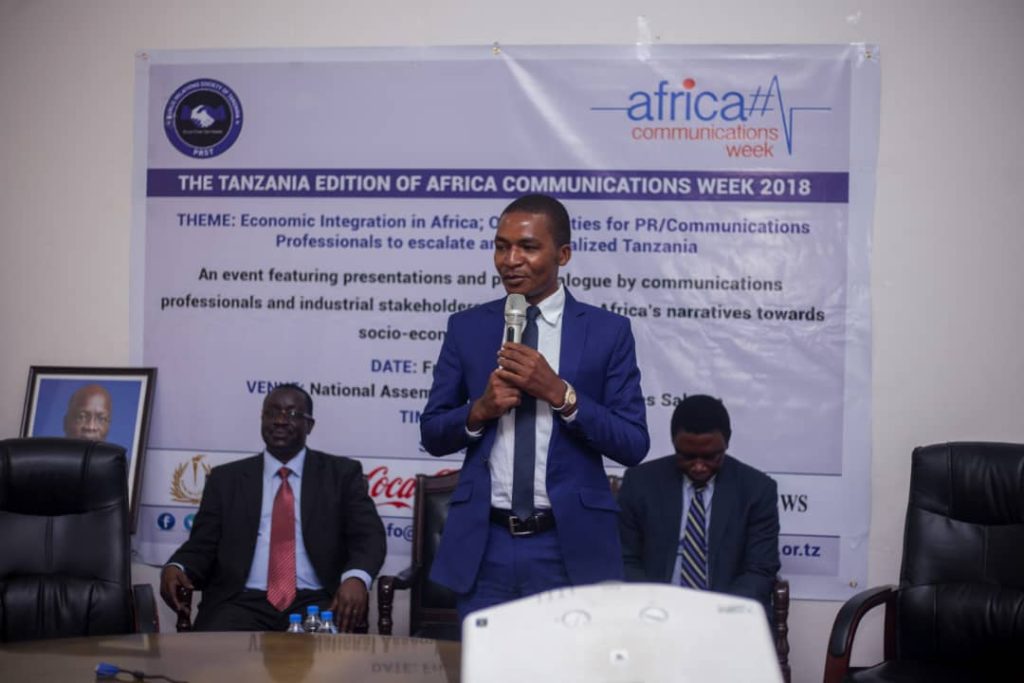
In Libreville, the agency Novatris piloted the Gabonese edition of AfricaCommsWeek. Focusing on the challenges of public communication the debate highlighted the crucial role of the sector for effective African integration, in the presence of Camélia Ntoutoume, director of government information and an exceptional panel opinion leaders.
Beyond reflection, action! For African integration to succeed African, there are stories to build if we want to move forward and win together. It is on this note that the Moroccan Association of Marketing and Communication (AMMC) made its recommendations to participants in Casablanca, in the presence of the Secretary General of the Ministry of Communication. The professionals present also came up with innovative orientations and approaches to communicate Africa.”

